Bert Horwood, Reporting
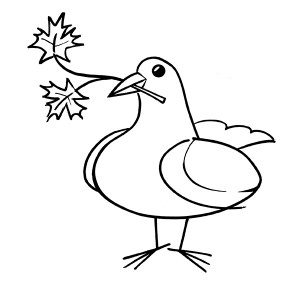 “We prepare for war but pray for peace.”
“We prepare for war but pray for peace.”
At the height of Canada’s war in Kandahar, I was invited to speak for a couple of minutes at a concert featuring songs of war and peace. My fellow speaker was a military commander who spoke from his position as a ranking soldier. My perspective was that of a Quaker and a pacifist.
The military man spoke graciously, concluding his remarks with these words: “We prepare for war but pray for peace.”
I felt that there was something wrong with this, so when my turn came I told a story from one of Shakespeare’s greatest plays.
In Hamlet, Claudius the king kills his brother to gain both the crown and the queen. Claudius is forced to acknowledge his guilt. He kneels to pray for forgiveness, but finds himself unable to do so because he is unwilling to give up the crown or his new wife. He ends his attempts saying,
My words fly up. My thoughts remain below.
Words without thoughts never to Heaven go.
The same holds true for prayers for peace. Our deeds reflect our deepest prayers. Praying for peace without working for peace can never amount to a sincere prayer.
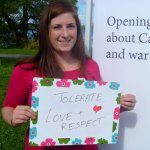
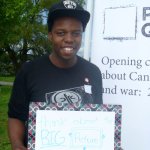

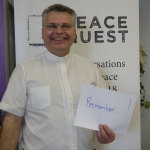
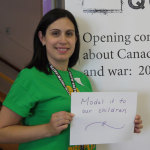
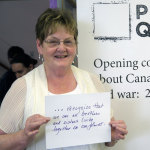
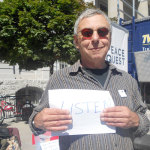
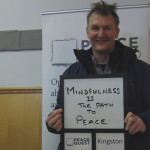

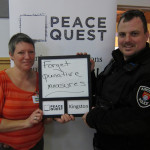
Jane McGall
June 6, 2013 @ 1:42 am
I remember a powerful scene I saw in a film about Ghandi. One peaceful protester after another stepped up and was struck down by an armed soldier. Each one was beaten down in turn by the soldier’s rifle, only to be replaced by the next person behind. Finally it became clear to the soldier that this violent approach was ineffective. At first, his aggression increased, reflecting his anger and frustration at the protestors’ unwillingness to defend themselves coupled with their refusal to back down. But as the one sided violence continued, he gradually broke down and finally could no longer continue. How tragic that it takes such courage on the part of so many to make some people see the value of peace.